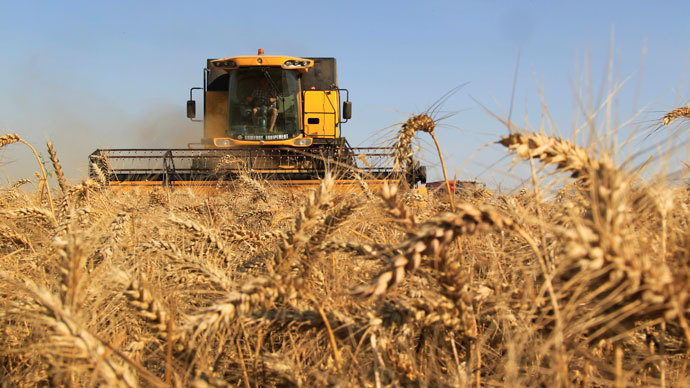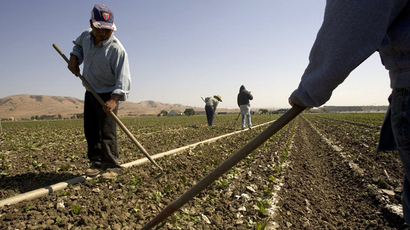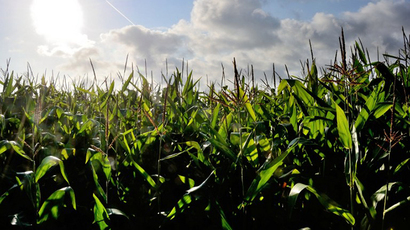US farmers challenging Monsanto patent claims appeal to Supreme Court

Public advocacy groups and farmers have joined forces to challenge biotech giant Monsanto’s claims on genetically engineered seed patents, and to halt the company’s aggressive lawsuits against anyone whose fields are contaminated by their GMOs.
Seventy-three US farmers, seed companies, and public advocacy
groups appealed their case against Monsanto Co. to the Supreme
Court on Thursday.
The case seeks to challenge Monsanto’s aggressive claims on
patents of genetically-engineered seeds and aims to bar the
chemical and biotech company from suing anyone whose field is
contaminated by such seeds.
Monsanto has in the past sued over 100 farmers for patent
infringement and won cases against farmers who were found to have
used seeds without paying the company royalties.
In June, the US Court of Appeals for the Federal Circuit affirmed a previous ruling which states that the
group of organic and otherwise non-GMO farmers and other
plaintiffs do not have standing to prohibit Monsanto from suing
them should the company’s genetic traits end up on their holdings
"because Monsanto has made binding assurances that it will not
'take legal action against growers whose crops might
inadvertently contain traces of Monsanto biotech genes (because,
for example, some transgenic seed or pollen blew onto the
grower's land).'"
But the company’s assurances did not assuage the plaintiffs’ fear
of future alleged patent infringement.
"While the Court of Appeals correctly found that the farmers
and seed sellers had standing to challenge Monsanto's invalid
patents, it incorrectly found that statements made by Monsanto's
lawyers during the lawsuit mooted the case," said Daniel
Ravicher, Executive Director of the Public Patent Foundation
(PUBPAT) and lead counsel to the plaintiffs in the case, OSGATA
et al v. Monsanto. "As a result, we have asked the Supreme
Court to take the case and reinstate the right of the plaintiffs
to seek full protection from Monsanto's invalid transgenic seed
patents."
Ravicher says the company’s patents on genetically-modified seeds
don’t meet the “usefulness” requirement of patent law. The
plaintiffs’ filing cites evidence proving that the
genetically-engineered seeds have negative economic and health
effects, while the supposed benefits for food production and
avoiding toxic pesticides are weak.
“As the leading arbiters of justice in the US, it behooves the
Supreme Court to hear this important case to protect America’s
farmers from abusive patent infringement lawsuits and invalidate
Monsanto’s flawed patents as their products have been shown to be
damaging to human health and the environment and failed to live
up to the marketing hype,” Dave Murphy, a plaintiff in the
case and founder of the advocacy group Food Democracy Now, said
in a statement.
Monsanto issued a statement Thursday saying the plaintiffs were
looking for controversy where it doesn’t exist.
"The District Court ruled and Court of Appeals affirmed that
there was no controversy between the parties," the company
said in the statement. "There is neither a history of behavior
nor a reasonable likelihood that Monsanto will pursue patent
infringement against farmers who have no interest in using the
company's patented seed products."














